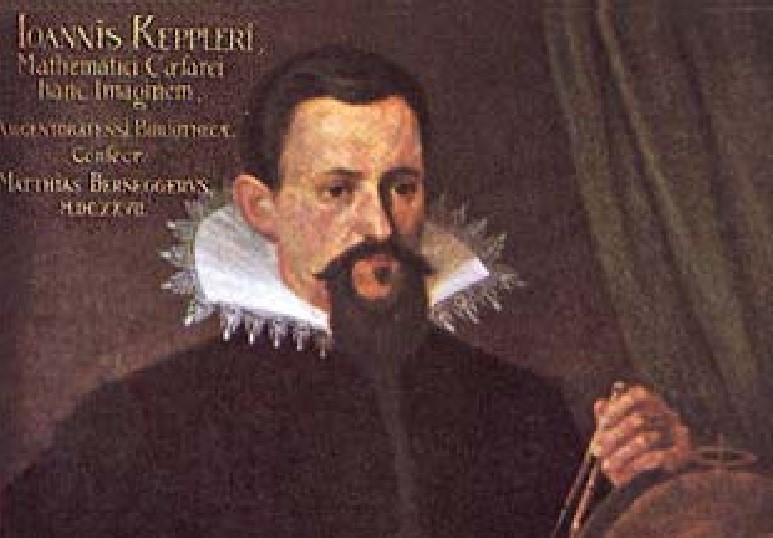“Johannes Kepler lived between the death of Nicholas Copernicus in 1543 and the birth of
Isaac Newton in 1642.” States John Wilson of Georgia State University in the opening of his biography of the genius mathematician and astronomer. “His life formed a critical bridge between these two great men. Kepler used the Copernican Heliocentric model of the universe to turn astrology into the modern scienceof astronomy.”
John Wilson’s biography of Johannes Kepler.

“This fundamental base for science was used by Newton to develop the classical physics still used today to send men to the Moon, something Kepler himself discussed in his book entitled Somnium, published in 1634. Kepler validated the aesthetically beautiful ideas of Copernicus and paved the way for Newton’s theory of gravity.
During Kepler’s life William Shakespeare, Frances Bacon, Guy Fawkes and Milton were writing, Rembrandt was painting, Tycho Brahe was making precision observations of stars and planets, Galileo was using the first astronomical telescope, Elizabeth I was Queen of England, the Spanish Armada was sunk, the Mayflower sailed to North America, and the Inquisition was occurring in Europe.1 Many of these people and events influenced Kepler’s life and shaped the modern science of astronomy.
Johannes Kepler was born prematurely on 27 December 1571 at Weil der Stadt in Wurttemberg, Germany after a pregnancy that lasted 244 days, 9 hours and 53 minutes. His father was a mercenary soldier who was frequently gone from home. Johannes’s mother, Katharine, was considered to be a nosey woman, and she had a vicious tongue.
In addition she dabbled in occult types of activities. These personality traits were to later cause her and Johannes lots of personal difficulty with the courts. Johannes was the oldest of their six children. At the age of one year he contracted smallpox and thereafter was a sickly child.
During his childhood his mother took him outside to view the great comet of 1577. She was interested in this apparition because it was believed that comets foretold dark events to come. Tycho Brahe observed this same comet form his observatory on the island of Hven. He concluded that it was farther away from the Earth than the Moon was….”
Read the full biography by downloading the Kepler Biography PDF..
No Comment
You can post first response comment.